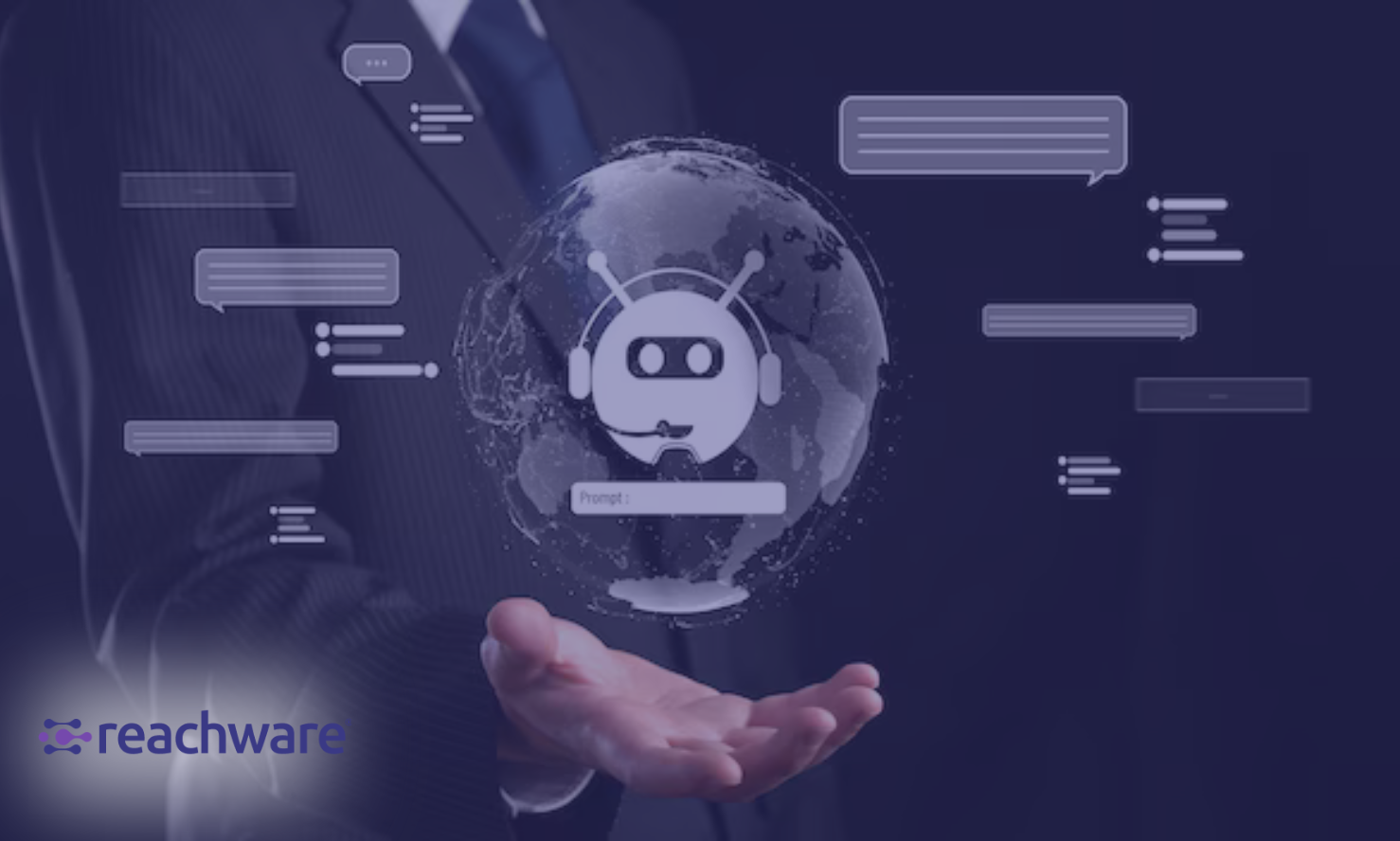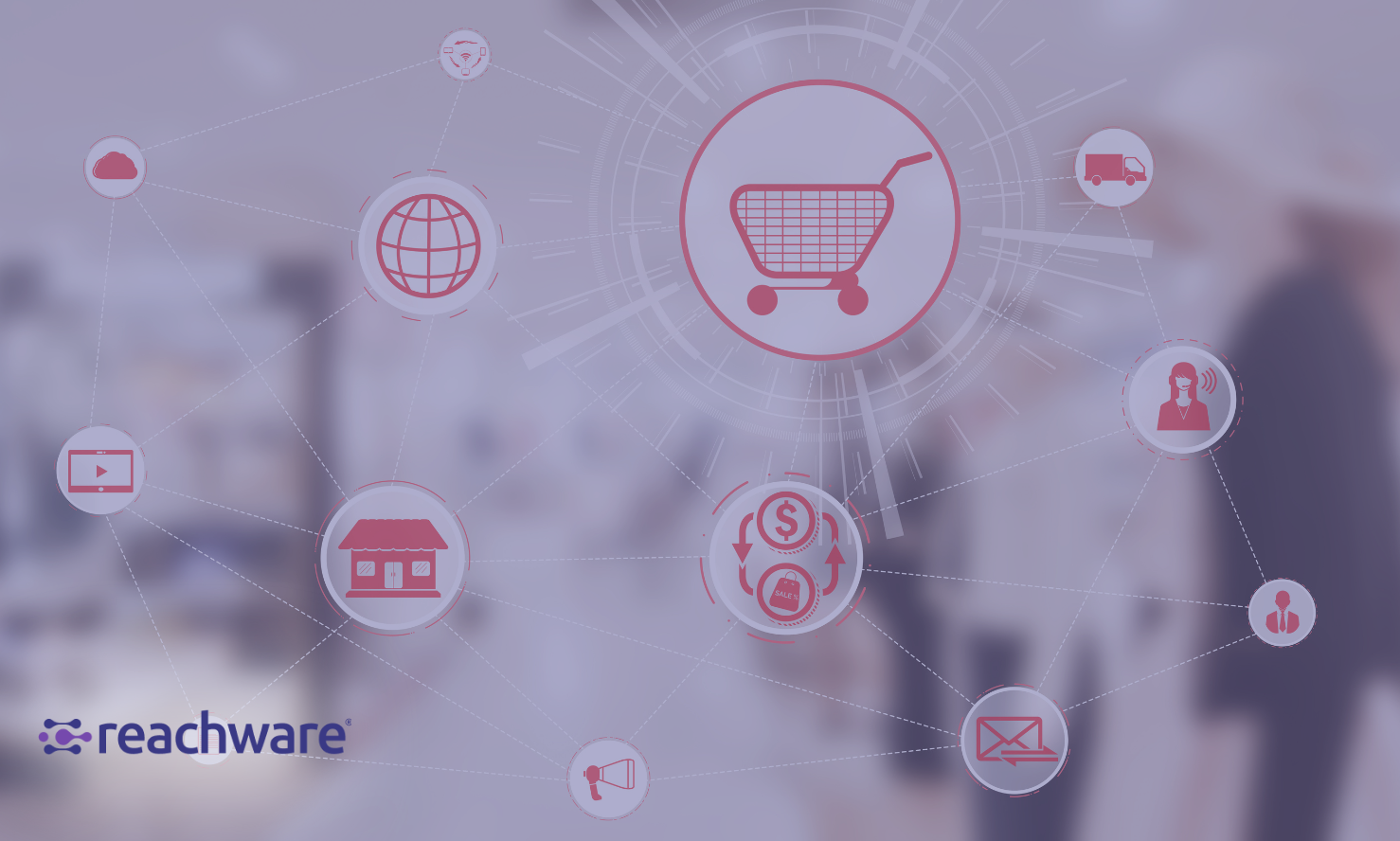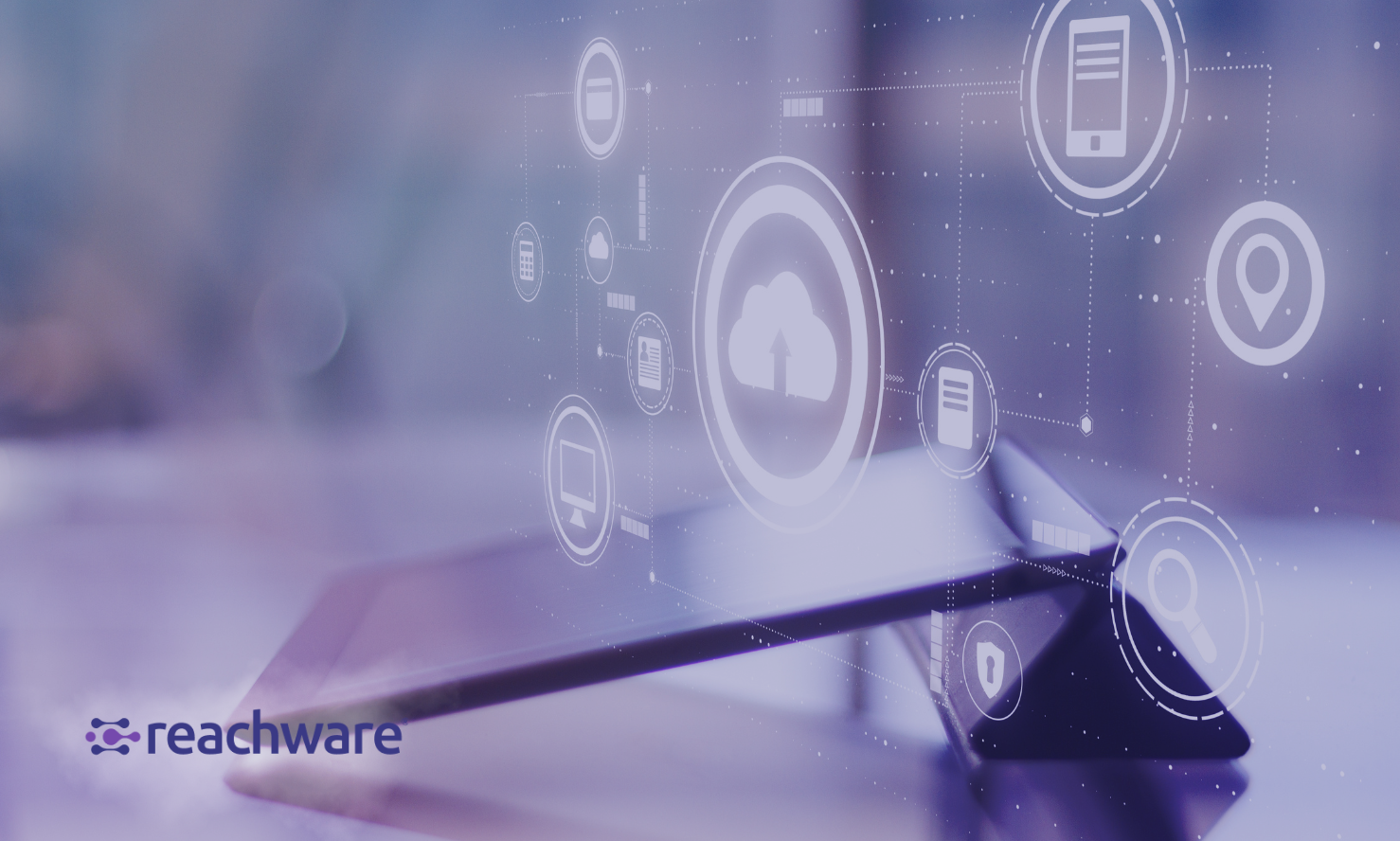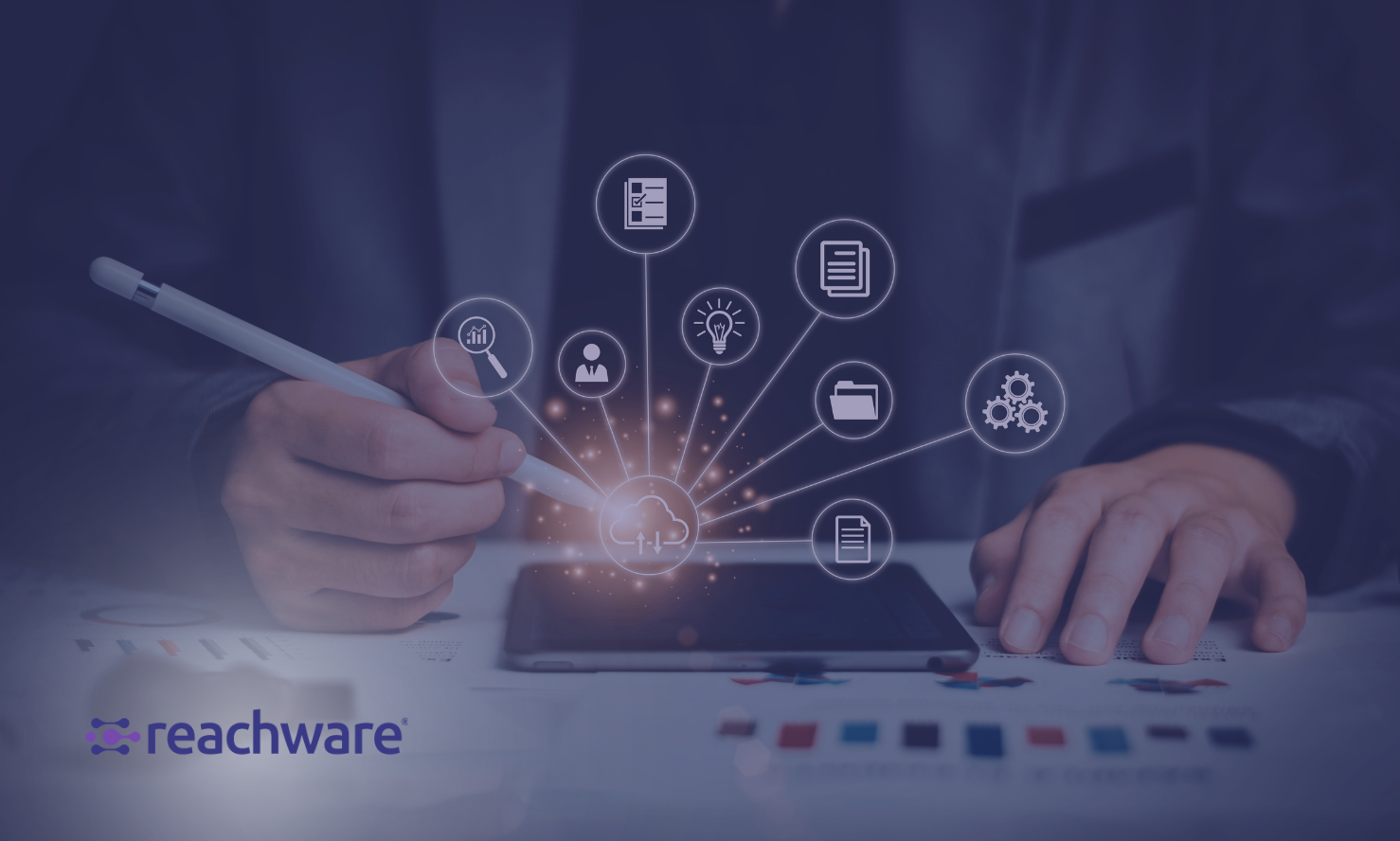Why is Integration the Foundation of Digital Transformation in Saudi Arabia?

Vision 2030's inspirational targets are driving Saudi Arabia towards immense digital transformation. Importantly, integration is the foundation that allows smooth data, system, and technological connectivity. Businesses increase efficiency, sharpen decision-making, and open new development prospects by grouping digital infrastructures. Reachware plays a pivotal role in this transformation by enabling seamless integration, ensuring businesses stay agile and competitive. From government projects to private sector developments, integration guarantees the harmonic operation of IoT, artificial intelligence, and cloud computing, thereby fostering smarter solutions.
What Is Digital Transformation in Saudi Arabia?
Aligning with Vision 2030, digital transformation in Saudi Arabia is using cutting-edge technologies to improve efficiency, creativity, and economic development. It includes the embracing of big data analytics, cloud computing, and artificial intelligence to modernize sectors and raise public services. To simplify activities, companies and government agencies are adopting e-governance, smart ideas, and automation. Emphasizing a digital-first economy, Saudi Arabia funds talent development, cybersecurity, and infrastructure substantially. This change helps diversify, lessens reliance on oil, and increases world competitiveness. The Kingdom wants to create a knowledge-based, sustainable economy by including developing technology.
Why Is Integration Crucial for Digital Transformation?
Integration guarantees seamless communication, efficiency, and better decision-making by tying systems, data, and processes together. It improves interoperability, drives out silos, and streamlines corporate operations. Real-time data sharing made possible by a properly integrated digital infrastructure lets companies react fast to changes in the market. By forging a consistent, omni-channel approach, it also enhances consumer experiences. Efforts at digital transformation run the danger of fragmentation, inefficiency, and security breaches without appropriate integration. Businesses get agility, scalability, and creative potential by combining technologies including cloud platforms, IoT, and artificial intelligence. In the end, a good digital strategy is mostly dependent on integration, which stimulates development and competitive advantage.
Benefits of How Digital Integration Improves Business Operations
Streamlining Workflows and Reducing Redundancies
Automating and streamlining corporate processes depends critically on integration. Organizations can reduce repetitive processes and manual data entering by linking many systems and applications, therefore improving their productivity. Automated procedures guarantee better operations throughout departments and help to lower human mistakes. Strategic initiatives allow employees to concentrate instead of administrative tasks, thereby increasing general output.
Enhancing Real-Time Data Access and Decision-Making
Businesses can obtain real-time data across several platforms by means of flawless integration. This helps executives to make wise judgments grounded in current data instead of depending on antiquated reports. Integrated systems guarantee correct data flow, which lets companies rapidly adjust to operational difficulties, consumer expectations, and changes in the market. Faster decisions translate into better industry competitiveness and response.
Improving Collaboration and Communication
Integrated business systems improve cooperation by letting several departments easily exchange data. Whether it's customer service, sales, or finance, staff members can use coordinated data to lower confusion and increase effectiveness. Further enabling remote teams to securely access data from anywhere and hence promote improved teamwork and productivity is cloud-based integration.
Optimizing Customer Experience and Satisfaction
Linking CRM, support, and sales systems guarantees a flawless customer experience from a well-integrated system. Consumers get consistent service across several touchpoints, tailored interactions, and fast answers. Long-term company success results from increased consumer pleasure and strengthened brand loyalty brought on by this.
Role of Vision 2030 Play in Digital Transformation Growth
Vision 2030 encourages sophisticated technology, smart infrastructure, and creativity to propel Saudi Arabia's digital change. It seeks to modernize the economy by including across sectors artificial intelligence, cloud computing, and automation. The program supports knowledge-based economy, improved corporate efficiency, and digital government services. Further quickening developments are investments in digital entrepreneurship, talent development, and cybersecurity. Vision 2030 guarantees sustained economic diversification by giving technical developments top priority, therefore lowering reliance on oil and improving world competitiveness. Saudi Arabia is positioned as a top digital economy by this strategic road map, which also draws investment and promotes long-term development.
How Does Integration Enhance Cybersecurity?
Integration guarantees consistent compliance across platforms and lowers vulnerabilities, therefore strengthening cybersecurity by means of a single system. By means of real-time threat detection made possible by centralized security management, data breaches and cyberattacks are minimized. A well-integrated infrastructure guarantees regulatory conformance by improving encryption, access control, and monitoring and thereby preventing illegal access. Further guarding against new hazards are automated security upgrades and patch management. Simplifying security systems across clouds, apps, and networks helps companies keep a strong protection against cyberattacks. Integration finally increases resilience by securing private data and guaranteeing operational continuity.
Major Industries Using Most from Integration in Saudi Arabia
Healthcare: Enhancing Patient Care
In the medical field, integration lets pharmacies, clinics, and hospitals safely share real-time patient data. Electronic health records (EHRs) improve diagnosis accuracy by simplifying patient history tracking and thereby lowering errors. Integrated systems improve general efficiency through better appointment scheduling, telemedicine services, and automated billing. In terms of better patient care, AI-powered data is helping forecast health trends and maximize resource allocation.
Finance: Strengthening and Streamlining Transactions
Integration through flawless banking operations, safe payment gateways, and fraud detection systems helps the financial sector most of all. Integrated financial systems let banks increase compliance, automate risk management, and offer individualized customer services. Leveraging integration, block-chain technology, and AI-driven financial advising services, fintech solutions enable digital payments, guarantee a more linked and safe financial environment.
Retail: Elevating Customer Experience and Inventory
Using integration for omnichannel experiences—connecting online and physical sales channels—retail companies. To offer real-time stock updates and hence prevent shortages or overstocking, inventory management systems link with e-commerce systems. Digital payment integrations, automated customer relationship management (CRM), and tailored marketing improve the purchasing experience and increase client loyalty by means of satisfaction.
Logistics: Optimizing Supply Chain and Delivery Services
Through supplier, manufacturer, and distributor connection, integrated logistics solutions increase supply chain efficiency. Systems of real-time tracking improve fleet management, lower delivery delays, and increase openness. Predictive analytics enabled by artificial intelligence enable companies to foresee demand, therefore lowering running costs and increasing service dependability.
Government Services: Enabling Smart Governance
The government of Saudi Arabia uses integration to improve e-governance, therefore guaranteeing flawless public services. In fields including taxes, licensing, and social services, digital identity verification, safe data-sharing systems, and automated processes increase effectiveness. The government supports Vision 2030's digital transformation aims by including digital infrastructure, therefore fostering openness, accessibility, and simplified operations.
Common Risks to Face During Poor Integration
Bad integration results in data silos, whereby important data is segregated across systems and causes inefficiencies and confusion. Redundant procedures, hand-written data entry, and operational delays could all cause problems for companies, thus reducing the general output. Cybersecurity risks grow when decentralized systems are more prone to be broken through without centralized security controls. Moreover, limiting scalability becomes a big obstacle that keeps companies from using new technology or effectively increasing their operations. Companies pay more, have more compliance problems, and unhappy customers from uneven experiences without perfect integration. Maintaining efficiency, security, and long-term corporate expansion depends on closing integration gaps.
Conclusion
The foundation of Saudi Arabia's digital revolution is integration, which guarantees flawless communication, economy, and industry-spanning innovation. Reachware enhances this transformation by providing seamless connectivity across systems, enabling businesses and government agencies to achieve the audacious targets of Vision 2030. By integrating technologies such as artificial intelligence, IoT, and cloud computing, strong integration frameworks will propel economic development, improve security, and generate smarter experiences.
Frequently Asked Questions
How does integration improve healthcare in Saudi Arabia?
Easy access to consistent patient records made possible by integration guarantees improved cooperation amongst medical professionals. As telemedicine services get more effective, distant consultations and better patient care follow.
How does digital transformation impact e-commerce?
Integration offers real-time stock updates and automatic refilling, hence simplifying inventory control. With encrypted payment gates and fraud prevention, secure transactions guarantee consumer confidence.
Can integration drive sustainability efforts in Saudi Arabia?
By linking smart grids, therefore lowering waste, and so increasing resource efficiency, smart integration maximizes energy utilization.
What skills are needed for successful integration?
Strong knowledge in data management is essential for professionals handling analytics and massive information processing. Protection of integrated systems from data breaches and cyber-attacks depends on cybersecurity knowledge.
How can companies start their integration journey?
Companies should start by evaluating their present digital setup and pointing up areas for integration. Funding scalable cloud-based solutions and API-driven technologies guarantees flawless system connectivity




























